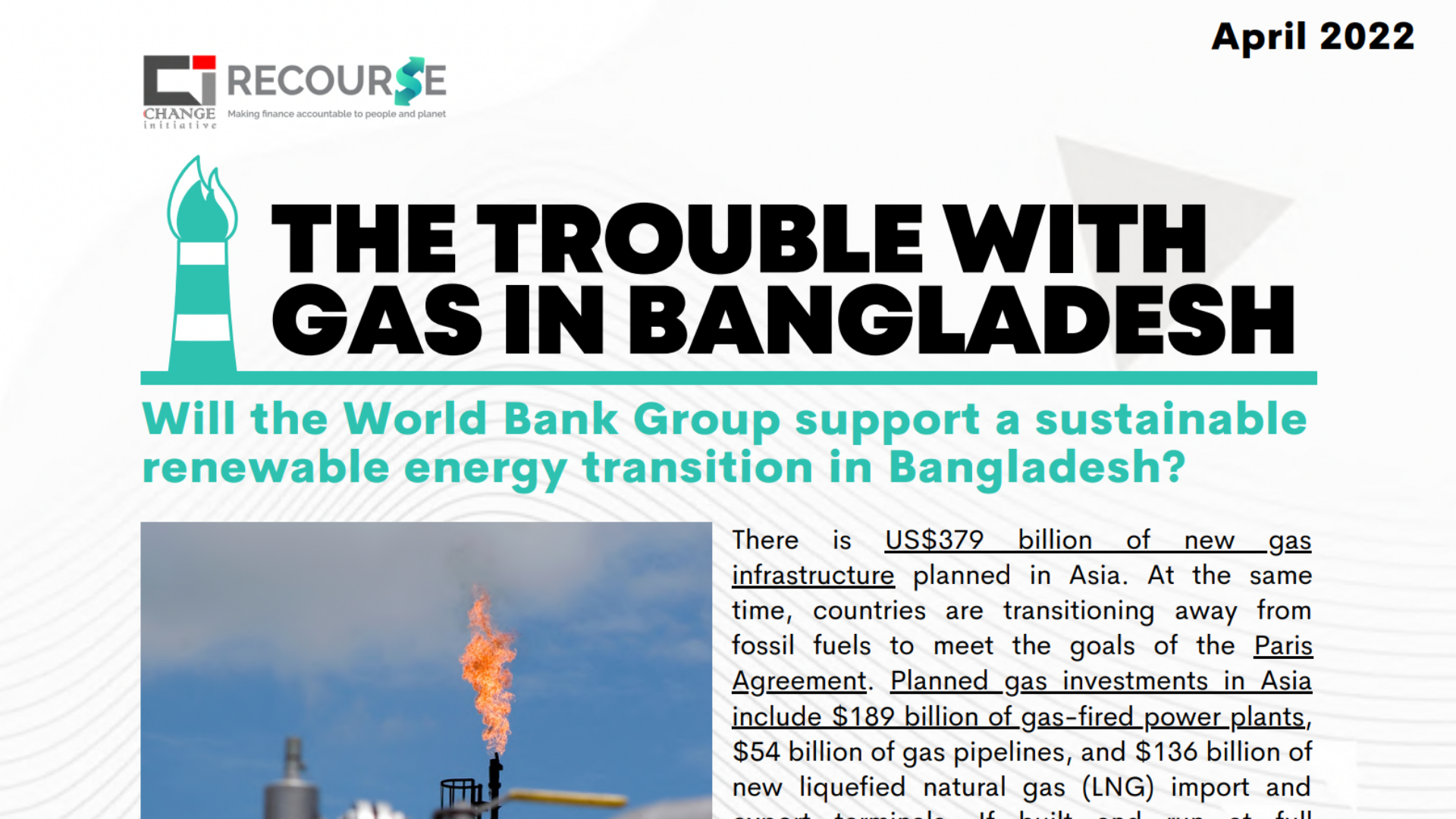- 14.04.2022
- Ecological justice
- Array
The World Bank and IFC have substantially supported the development of fossil gas and LNG infrastructure, including through financing gas-fired power stations, pipelines and LNG regasification plants in Bangladesh. Both institutions bear responsibility for Bangladesh’s unsustainable and volatile gas-based energy model.
There is US$379 billion of new gas infrastructure planned in Asia which is at risk of becoming stranded assets. Yet the nations of the world are transitioning away from fossil fuels to meet the goals of the Paris Agreement. Planned gas investments in Asia include $189 billion of gas-fired power plants, $54 billion of gas pipelines, and $136 billion of new liquefied natural gas (LNG) import and export terminals. If built and run at full capacity, these would contribute to pushing the world way beyond 1.5°C of warming.
The World Bank Group must:
- Remove any references to exploration of domestic gas resources and importing LNG as priorities in the planned Bangladesh Country Partnership Framework 2022 – 2027 and support the Government of Bangladesh to meet its goal as chair of the CVF countries to achieve 100% renewable energy by 2050.
- Redesign its country level interventions in line with a sustainable development approach. This must emphasise energy security built on locally sourced sustainable renewable energy.
- Stop all finance through the IFC to clients and financial intermediaries that are developing fossil gas and LNG infrastructure in Bangladesh.
- Urgently reorientate its priorities and financing to rapidly scale up the energy transition that leapfrogs fossil gas ‘from coal to clean’ in Bangladesh, based on the Polluter-Pays Principle

